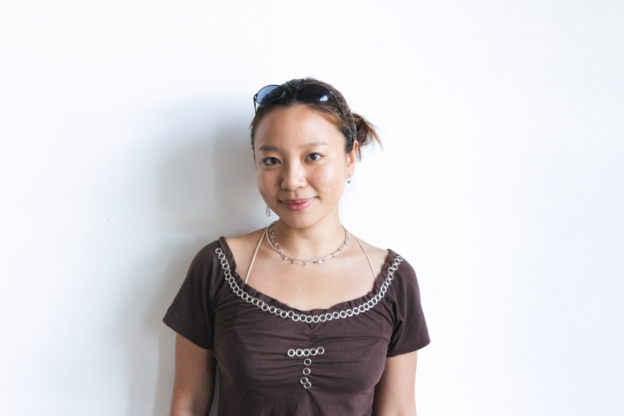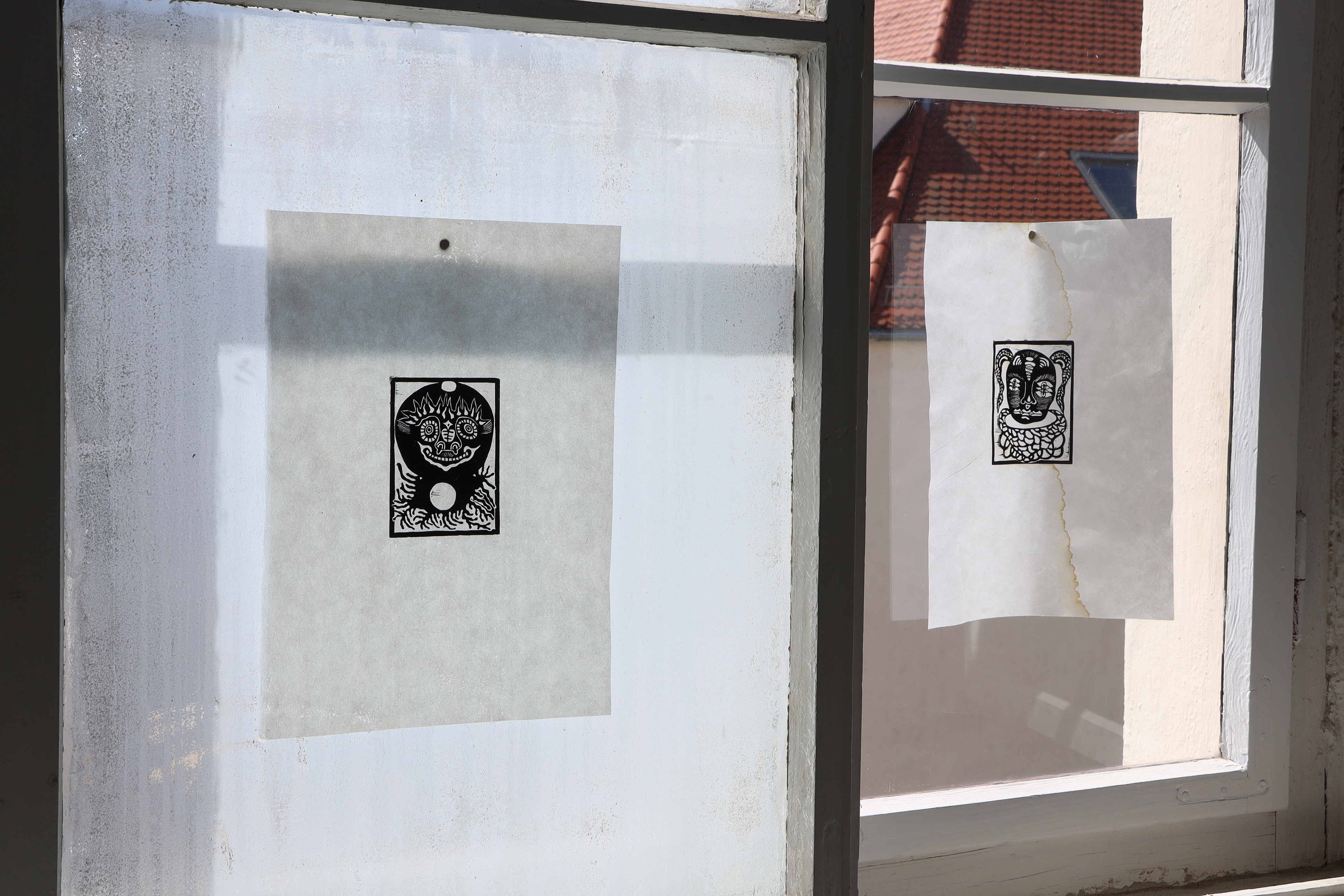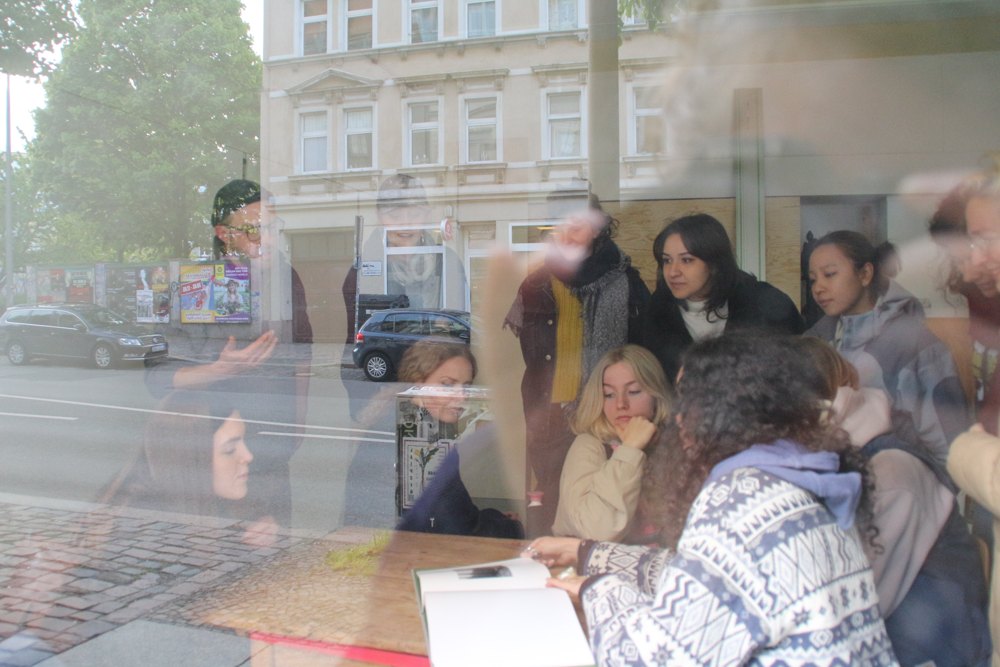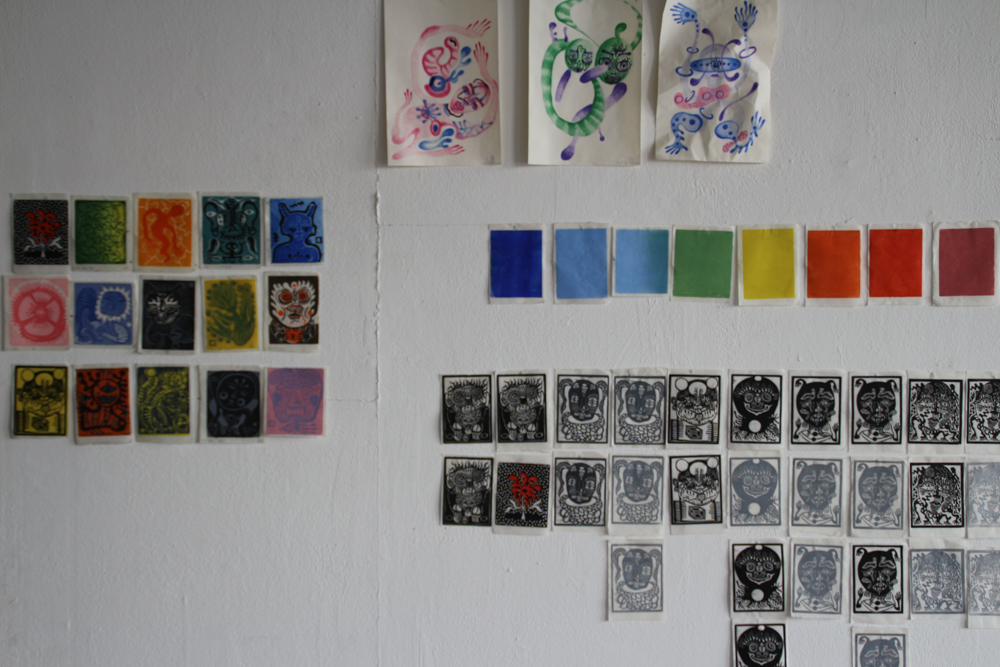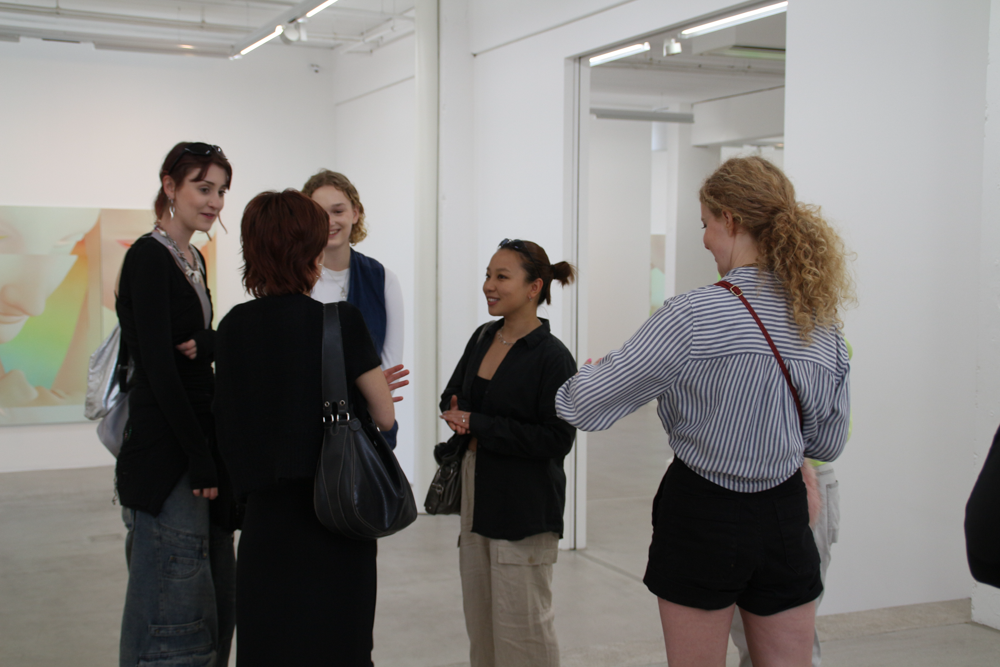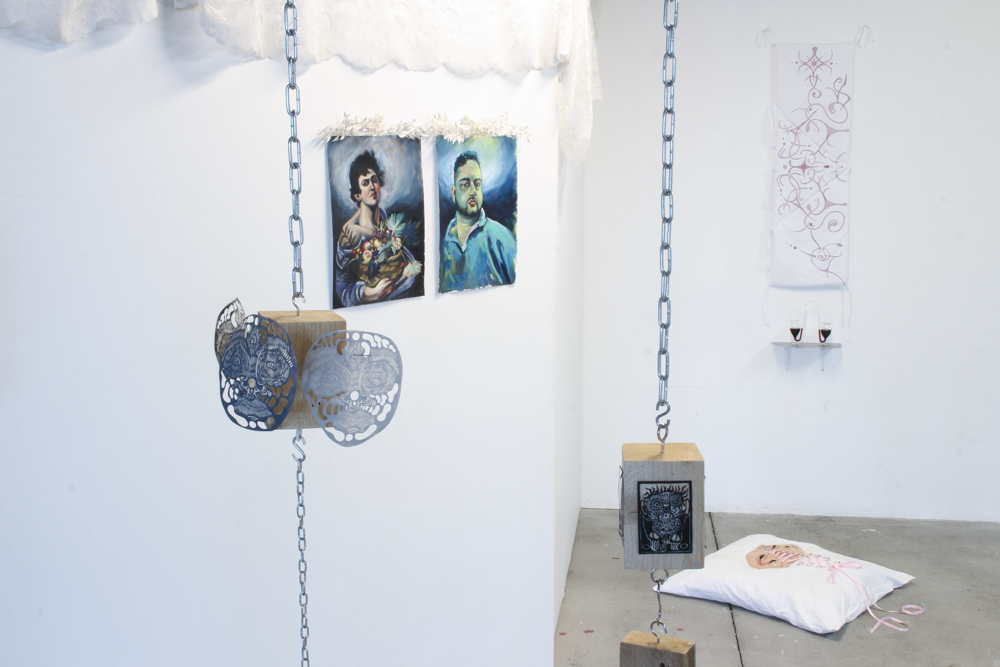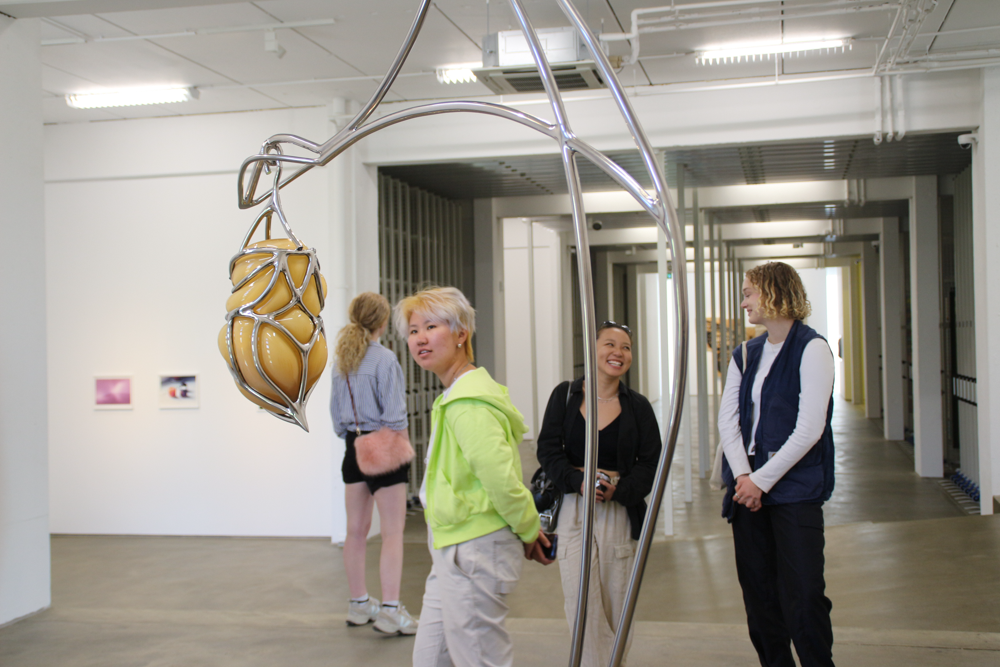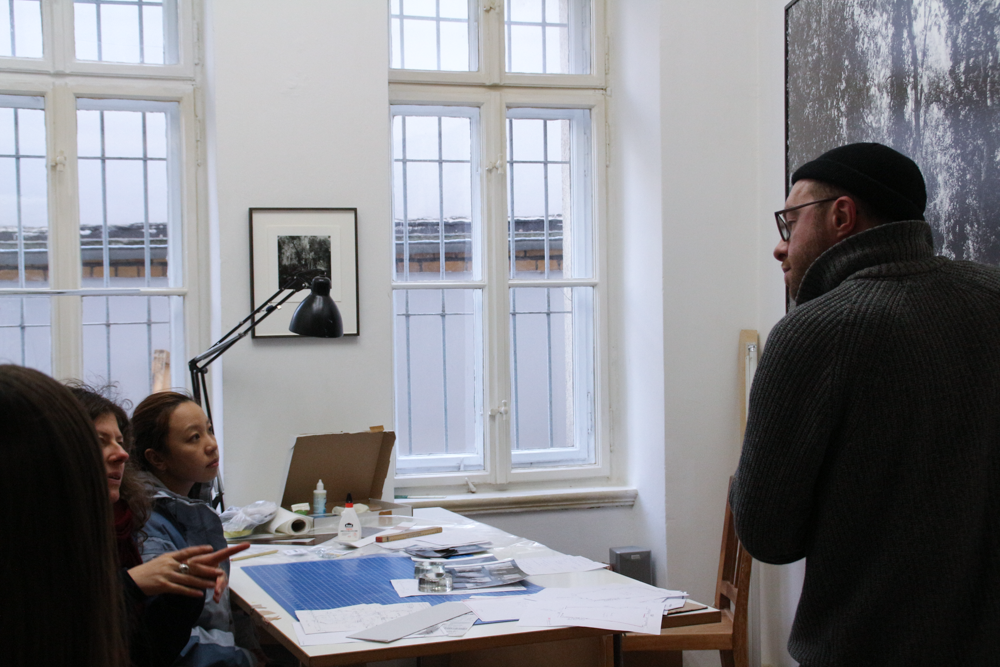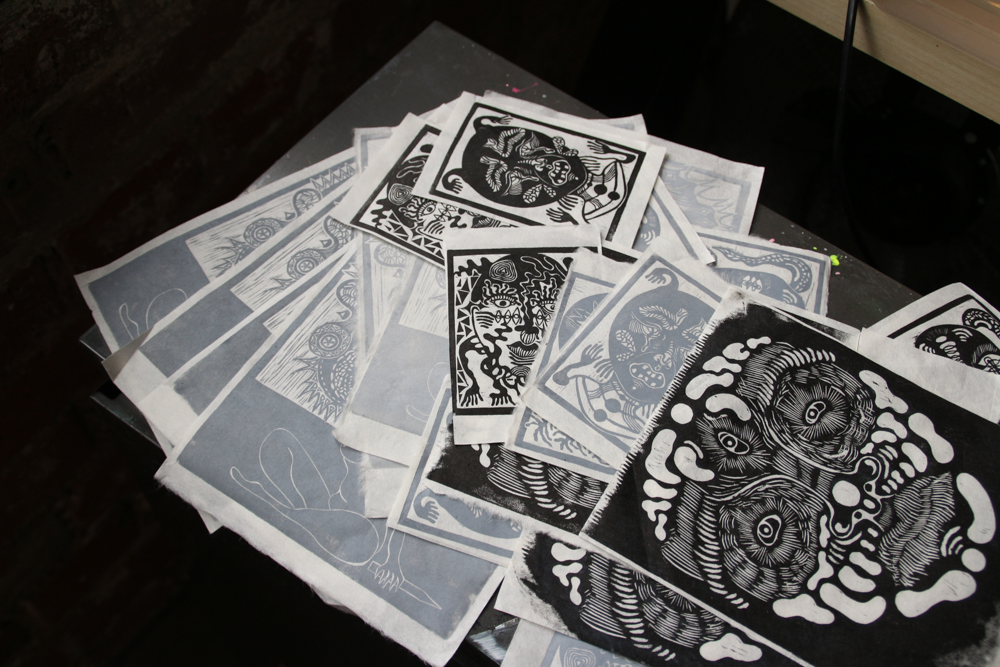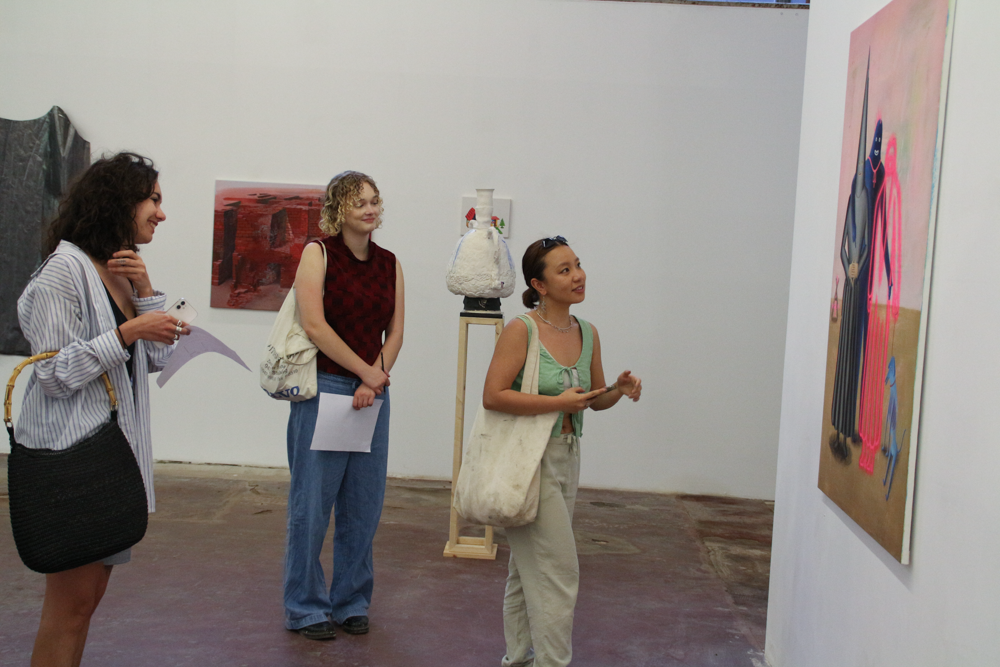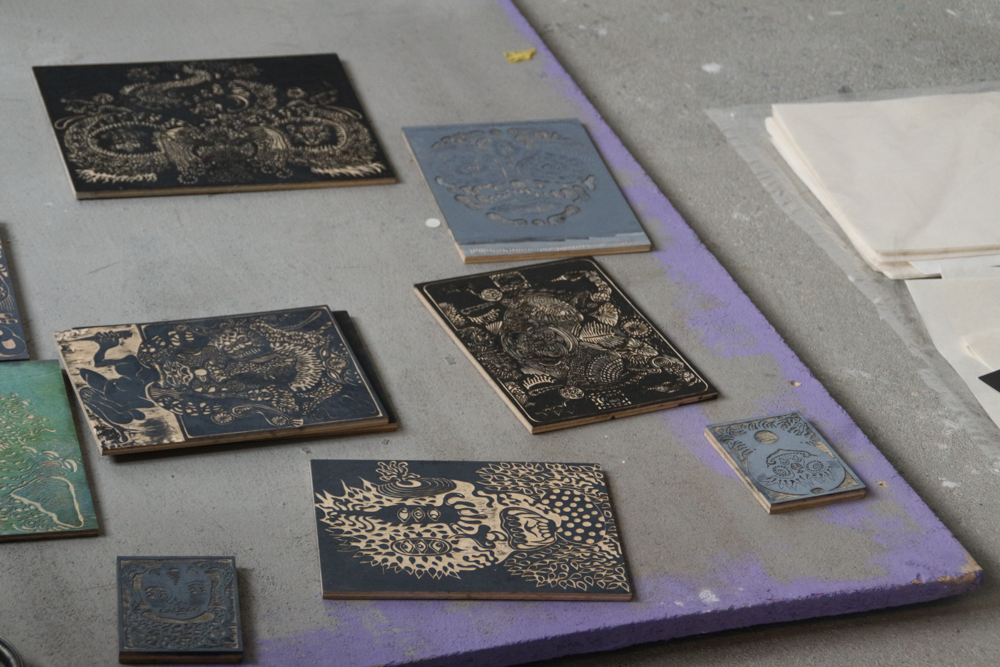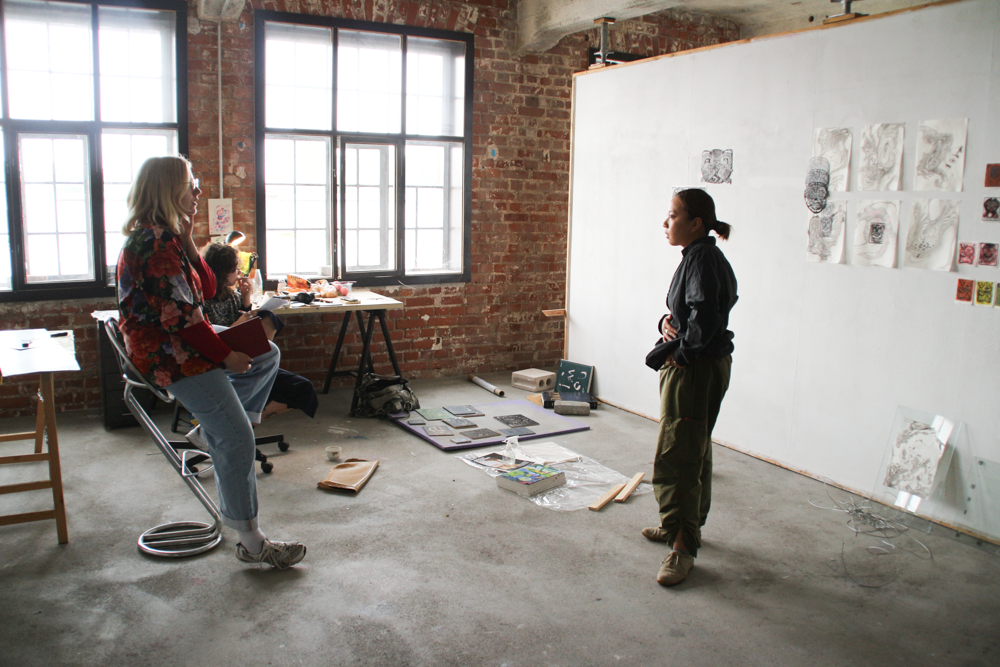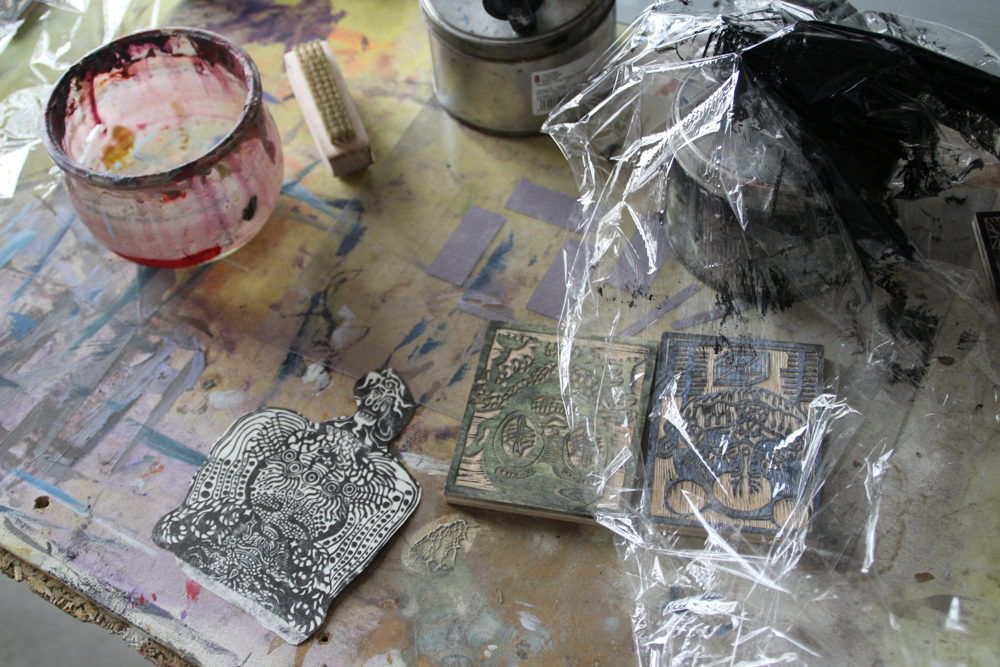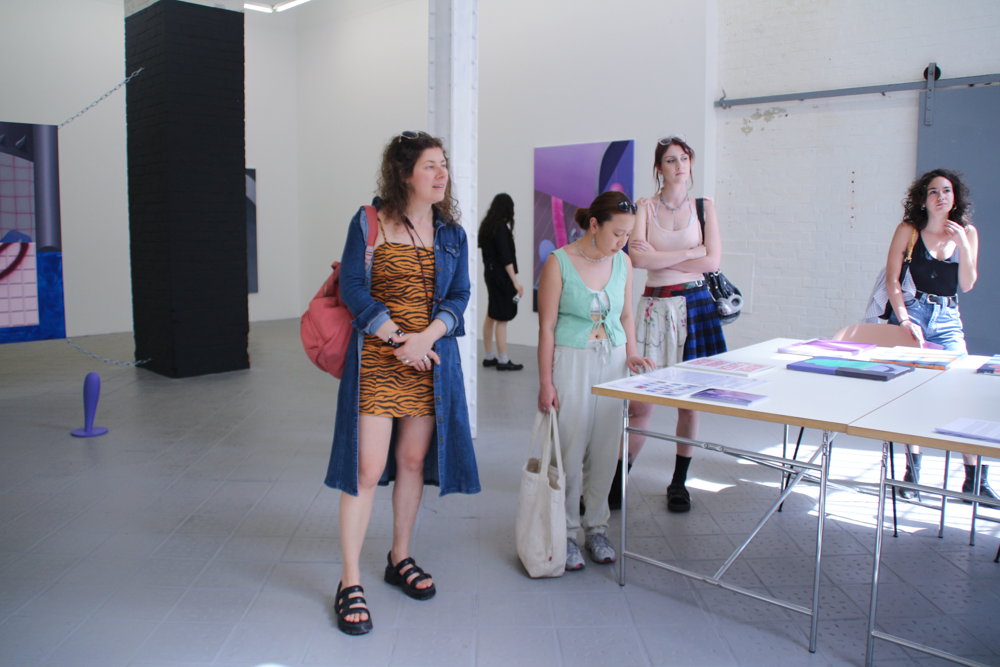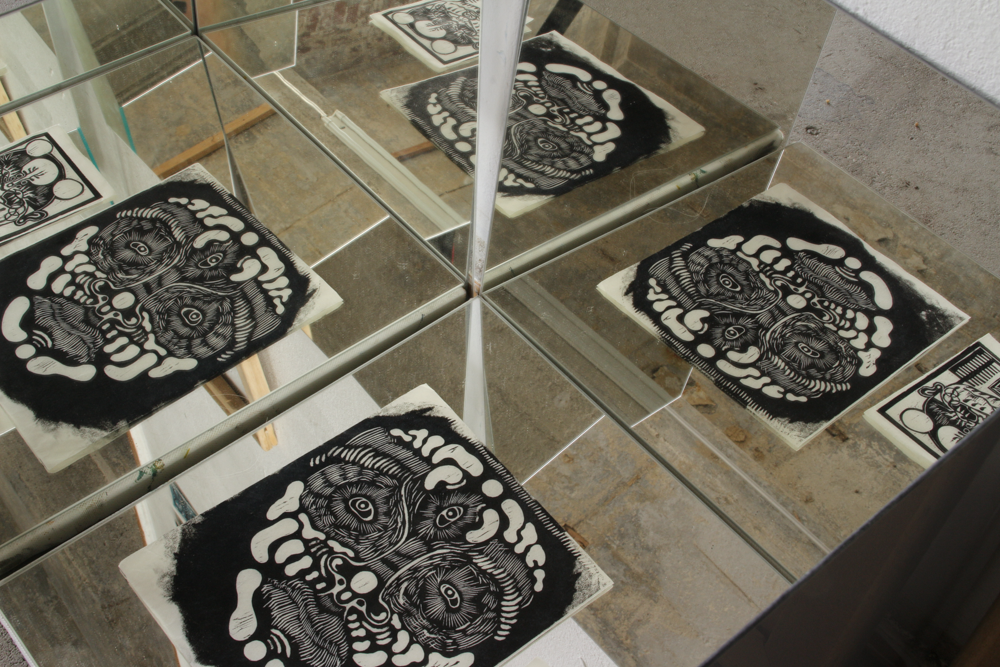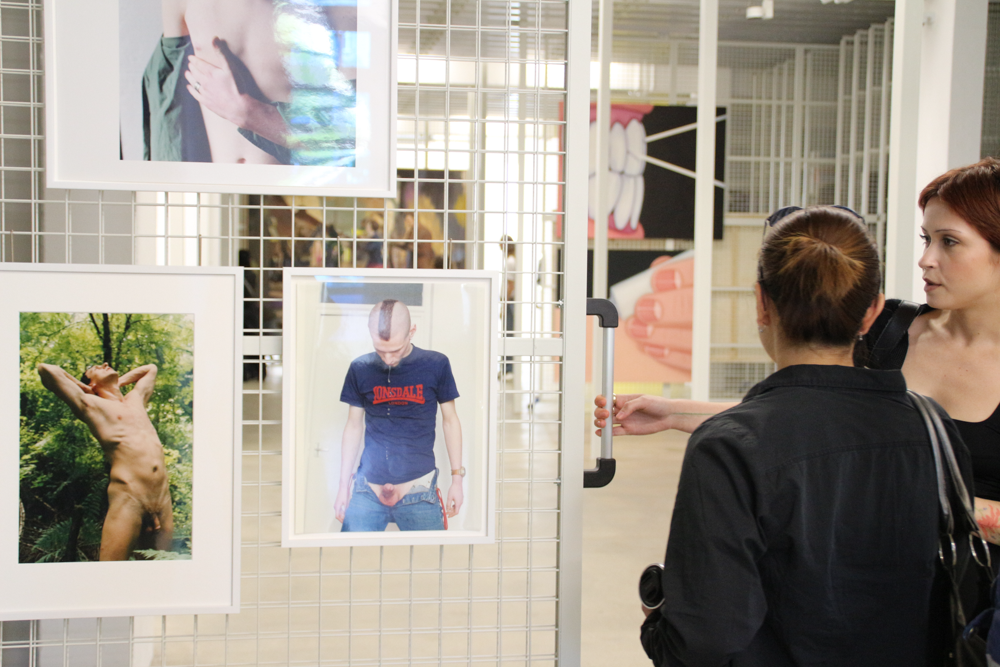Sudi Wang believes that through art, we can find common ground, share experiences, and foster empathy. Through her woodcut relief prints, she harnesses the power of storytelling. These stories harken back to her childhood growing up around South Asia, where various cultures, religions, and traditions meet and often include monsters. She refers to the combining of monsters and humanity as “monsterity”. The monsters are not meant to instill fear, but to provoke contemplation and spark conversations about our shared humanity and the essence of our existence.
Having discovered print making at university, she finds it an organic process with each step in the process having its own significance. From the moment the blade cuts into the wood to the exposing of the print, there is a connection that goes deeper than the surface. It is widely accepted that wood block printing started in China around 600. Printed books on agriculture and medicine, greatly increased the spread of information. It would be another 400 years before moveable type was invented in Western Europe.
Sudi and the monsters
Besides tradition, the monsters offer insight into cultural morality. Sudi investigates their purposes and captures their essence. Sometimes the stories are more important than the figures themselves, behind the study she questions why the stories have been told in the first place.
images by PILOTENKUECHE or supplied by artist
She chooses not to relay the messages she uncovers, but to keep them in her internal knowledge base. Instead of repeating the voices of the past, she brings those of the present to life through this timeless printing form. When carving, she allows the monsters to appear. There are no preparatory sketches, no pre-conceived concepts. As the blade cuts into the wood, images come to life and are given body during the printing process.
Whilst in Leipzig, Sudi has made a shift from 2D to 3D. This first appeared in her works for windy HOME. She elevated the wood block from a tool to the art itself. Rather than creating a relief, she allowed for movement by hanging 4-sided carvings from the ceiling by chains. The chains continued below the blocks as well, giving them a connection to the ground in addition to the heavens. Not only could the monsters that had come from elsewhere now walk amongst us, but they were placed at eye level so we could communicate. Eye contact is the first step to understanding.
“monsterity” springs to life
Sudi pushed her concept of “monsterity” even further for the mute BODY exhibition. Rather than printing on paper, she printed on her body and documented through photographs. Though the end result was still 2D, the mind automatically turns to the limitless possibilities in which the body can move.
She also experimented with video. Inspired by the main character, Mizoguchi, in Yukio Mishima’s The Temple of the Golden Pavilion, Sudi burns one of her prints. It burns slowly and without a big flame. It’s almost as though it is burning from the inside. Mizoguchi puts so much faith and importance in the temple that at some point he burns it down to regain his own sense of power and worth. As Sudi’s print comes to the end of its existence, she reverses the process and allows it to return. We are always growing and renewing. Nothing is the end, it’s only the beginning of something new.
written by maeshelle west-davies
windy HOME
part of Tour de Franz
Sat 25 & Sun 26 May
2PM – 7PM
PILOTENKUECHE
Franz-Flemming-Str 9
04179 Leipzig
mute BODY
Vernissage Fri 21 June 7-10 PM
Sat 22 – Wed 26 June 4-8 PM
Alte Handelsschule
Giesserstr 75
04229 Leipzig

